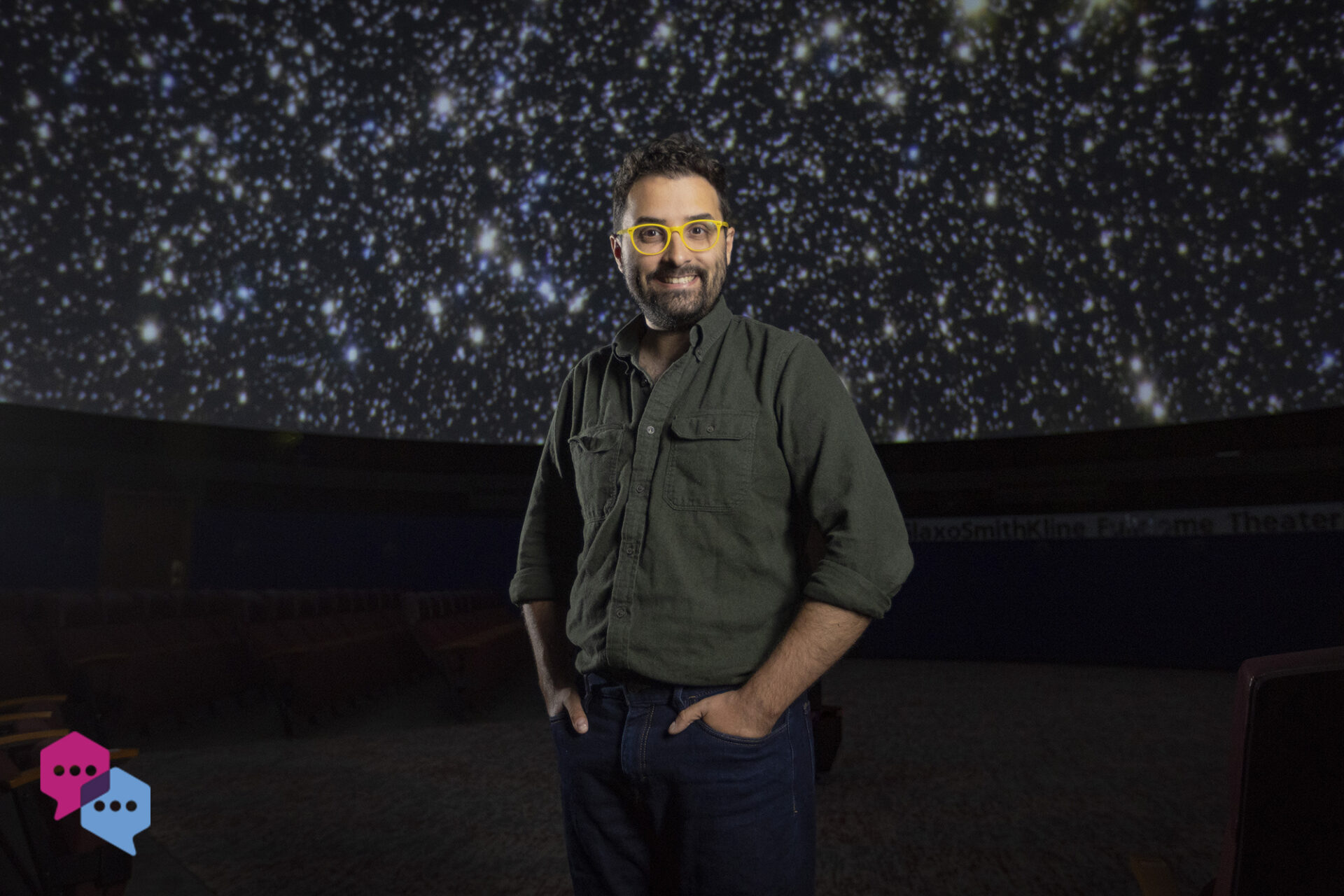RUNC: Carl Rodriguez
Carl Rodriguez studies how stars live, move, and die.
By UNC Research
April 24, 2024
Natural Sciences · Research Uncovered

Carl Rodriguez is an assistant professor in the Department of Physics and Astronomy within the UNC College of Arts and Sciences. He studies how stars move through space, evolve, and die. More specifically, he strives to understand how star clusters create some of the most powerful explosions in the known universe.
Q: How did you discover your specific field of study?
A: Largely by accident. In 2008, I was a physics major at a small liberal arts college, and I was looking for summer research opportunities. I came across a University of Florida program that promised to send you to Europe for two months to do research as part of the LIGO Scientific Collaboration, an international team searching for gravitational waves — ripples in spacetime predicted by Einstein in 1916. I knew little about LIGO or these waves but applied anyway.
I had a great time in Wales, and I absolutely loved using computer programming to solve physics problems in gravity — so much that I immediately applied to grad schools in the U.S. doing LIGO research. Over the course of my PhD and postdoc fellowships, I moved from analyzing LIGO gravitational-wave data to modeling the astronomical origins of the waves themselves, which still forms a large part of my research today.
Q: Academics are problem-solvers. Describe a research challenge you’ve faced and how you overcame it.
A: We’ve been working on a new way to understand how stars move around in clusters under their own gravitational pull. For this, we needed a way to pair up the stars, so that each one had a partner close to it in space. It’s reminiscent of a famously difficult problem in computer science called “the traveling salesman problem,” but we had to solve it for millions of stars as quickly as possible.
To find a solution, I asked an undergraduate student working with me to search the computer science literature broadly. After poking around in a range of different fields, we came across a kludge that could do it with the same kind of data structures used in computer vision and video games — breaking apart space into recursively smaller chunks, then recombining those chunks into a single curve. We’re now using this to create 3D simulations of star clusters. In other words, don’t be afraid to look outside your own field for solutions to problems.
Q: Describe your research in five words.
A: Swarming stars colliding across spacetime.
Q: Who or what inspires you? Why?
A: There are a lot of people working to expand diversity and inclusion across our field, especially from groups not represented as well as they should be in astrophysics. This includes several mentors of mine — other astrophysicists like Enrico Ramirez-Ruiz, Vicky Kalogera, and Smadar Naoz — who somehow manage to do groundbreaking science while working to improve the field for the next generation of scientists. I would love to reach a point in my career where I can have that kind of impact.
Q: If you could pursue any other career, what would it be and why?
A: I would probably get involved in politics, either on the policy or the data/polling side. It’s important work that I think would mesh well with my technical skills. That, or go to culinary school and become a chef.
Research UNCovered delves into the lives of UNC researchers from all disciplines and career levels, showcasing not only their research prowess but personal experiences in academia and beyond.
Special thanks to Morehead Planetarium & Science Center for providing the portrait location.
